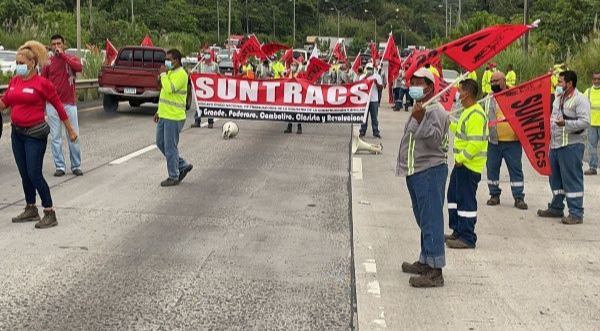
In several points of the country there have been road blockades in solidarity with the reality of the people of Colon. | Photo: @frenadeso
Panama City, October 29 (RHC)-- Hundreds of Panamanians from various sectors of the province of Colon mobilized this Thursday in a protest of increasing fuel prices. They also demanded actions by the government of President Laurentino Cortizo to address the lack of employment, the health situation and the deterioration of public infrastructure.
In the second day of mobilizations, the demonstrators -- among whom were families evicted from state land and public housing -- called on authorities for answers to the economic and social crisis in Panama.
The social leader, Edgardo Voitier, said: "We ask the President of the Republic, Laurentino Cortizo, to come to Colón. He says he is from Colón, but he is not interested in this province and its problems." Protesters called for the demonstrations to continue another 48 hours.
As part of the protests, closures were reported on the Transístmica highway, at Altos de Los Lagos, Villa del Carmen, Sabanitas, Río Rita, Quebrada López and Cuatro Altos, as well as in Portobelo. The same is occurring on the internal roads of San Pedro towards the old Panama Refinery, Río Gatún and Gatuncillo.
These actions were joined by the Sindicato Único Nacional de Trabajadores de la Industria de la Construcción y Similares; producers, transporters, and the medical personnel of the Hospital Manuel Amador Guerrero, in defense of the rights of those who demand a decrease in the price of fuel; improvements in working conditions and the payment of overtime to the health personnel.
During the protests in Colon, there were confrontations with members of the National Police deployed by the Government, which resulted in the arrests of at least a dozen people.
In view of this, the National Council of Workers repudiated "the criminalization of social protests, which do not have and will not have any excuse or justification because the lack of official responses continues to dramatize the lives of the people of Colon."

